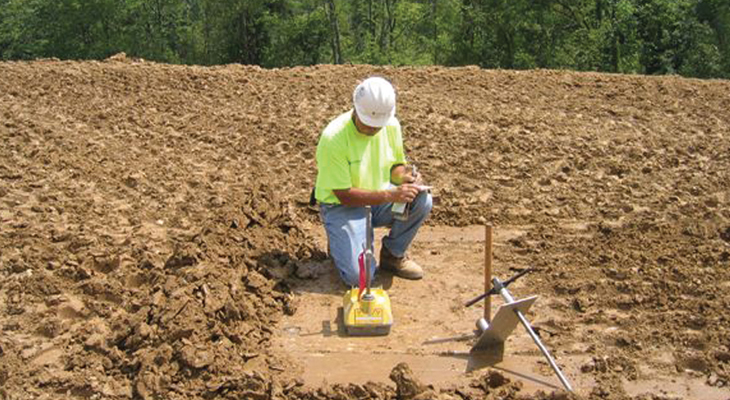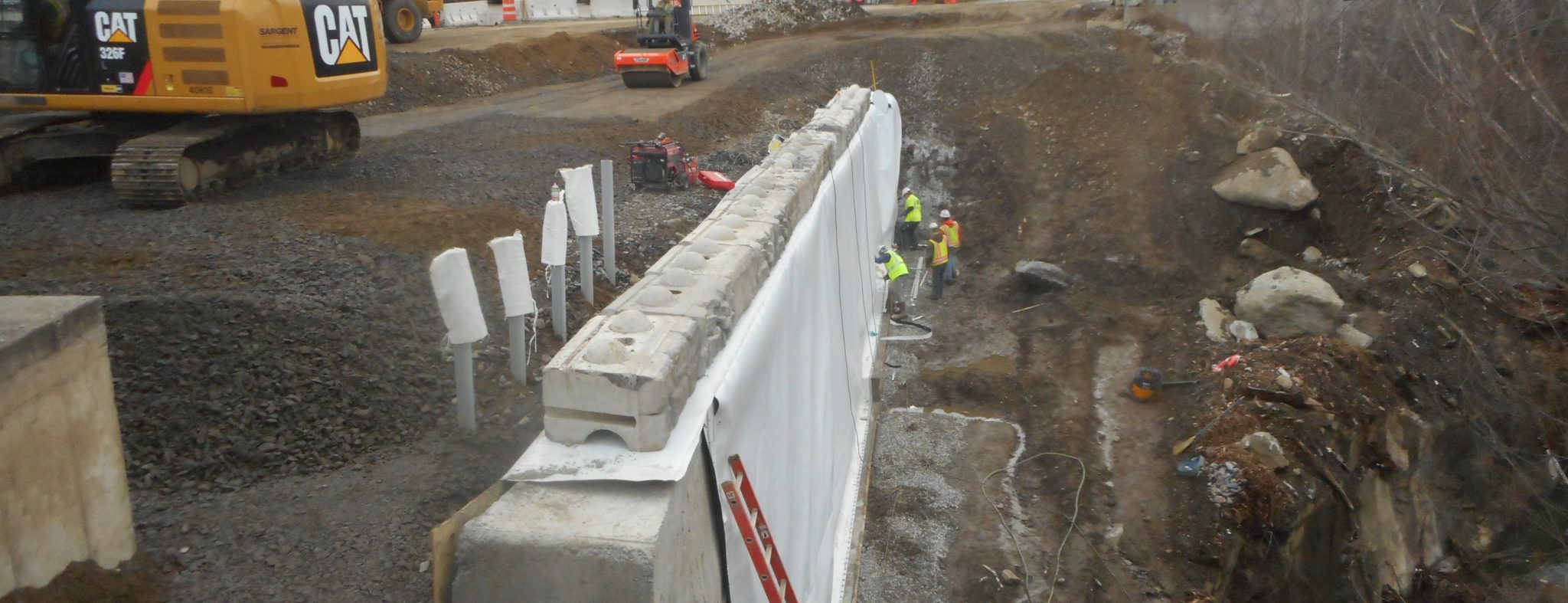Geo Tech Engineer: Enhancing Site Examinations with Advanced Geotechnical Techniques
Wiki Article
The Interdisciplinary Approaches in the Geotechnical Sector: Connecting the Void Between Design, Geology, and Environmental Scientific Research for Ideal Job Results
The combination of engineering, geology, and ecological scientific research within the geotechnical industry is not simply advantageous; it is important for achieving optimal task end results. This interdisciplinary collaboration cultivates a thorough understanding of complicated site conditions, enabling innovative options to emerge. By examining vital roles and effective case research studies, we can uncover the dynamic interaction that drives job success. Difficulties remain in successfully managing these multidisciplinary efforts, raising questions concerning prospective developments and future trends. What strategies might arise to promote this vital collaboration and boost the efficacy of geotechnical methods?Relevance of Interdisciplinary Cooperation
The significance of interdisciplinary partnership in the geotechnical sector can not be overemphasized. Effective geotechnical tasks call for the assimilation of varied competence from various fields, including engineering, geology, and environmental scientific research. This collaboration ensures that all aspects of a project are taken into consideration, leading to comprehensive services that attend to complex challenges.When working in seclusion,Interdisciplinary partnership fosters advancement by enabling experts to share insights and approaches that may not be noticeable. By leveraging the strengths of several disciplines, groups can determine prospective dangers, enhance layout processes, and improve the sustainability of geotechnical projects. Moreover, such cooperation advertises a holistic understanding of site-specific problems, which is vital for precise analysis and decision-making.
The complexity of geotechnical projects demands a coordinated strategy to problem-solving. Ultimately, interdisciplinary partnership is necessary for progressing best methods and accomplishing quality in the geotechnical industry.
Key Functions of Each Self-control
Cooperation among numerous techniques is not simply useful; it is essential for the successful execution of geotechnical projects. Each discipline-- engineering, geology, and ecological science-- plays a distinct yet interconnected duty that adds to project effectiveness and sustainability.Geotechnical engineers are mainly in charge of creating structures and making certain architectural stability. They assess soil and rock residential properties to examine load-bearing abilities, offering necessary information for safe construction techniques. Their know-how makes it possible for the solution of ingenious solutions to complex difficulties.

Environmental scientists evaluate the prospective influences of building on ecological communities and water sources. They carry out ecological evaluations and establish mitigation strategies to reduce negative impacts. By integrating eco-friendly factors to consider, they make sure conformity with policies and promote sustainability throughout the task lifecycle.
Study of Effective Assimilation
Successful assimilation of geotechnical disciplines can be exemplified via different case researches that highlight the effectiveness of teamwork in resolving complicated design challenges. One significant example is the building and construction of the Hong Kong-- Zhuhai-- Macau Bridge, where a collaborative method including geotechnical design, geology, and environmental scientific research was vital. Geologists and engineers functioned in unison to analyze the seabed problems and optimize the foundation layout, guaranteeing stability and reducing ecological impact.One more impactful instance is the renovation of slope security in the San Francisco Bay Area, where an interdisciplinary team incorporated geotechnical evaluation with environmental evaluations. By incorporating hydrological studies and geological studies, the group effectively identified possible landslide risks and executed reliable mitigation actions, enhancing safety and sustainability.
Moreover, the redevelopment of Brownfield websites commonly calls for a Get the facts multidisciplinary approach. In one case in Chicago, collaboration among geotechnical engineers, environmental researchers, and urban organizers caused the effective removal of contaminated dirt, allowing for the risk-free improvement of the website into a neighborhood park. These study illustrate that interdisciplinary cooperation not just addresses technical challenges but additionally cultivates ingenious solutions that profit both tasks and areas.
Difficulties in Multidisciplinary Projects

Moreover, coordinating timetables and process among various groups can be troublesome, especially when each discipline has one-of-a-kind task turning points and deliverables. This misalignment can cause hold-ups and raised expenses. The difficulty of resource allowance likewise looms huge; making certain that specific know-how is available at crucial junctures needs cautious preparation and foresight.
Lastly, governing compliance postures one more considerable difficulty. Each discipline might encounter different regulative frameworks, and lining up these requirements to satisfy project goals can be time-consuming and intricate. Attending to these obstacles requires solid leadership and efficient communication methods to foster partnership and guarantee that multidisciplinary groups function cohesively towards shared objectives.
Future Trends in Geotechnical Practices
As the geotechnical sector advances, emerging trends are reshaping methods to address the difficulties encountered in multidisciplinary jobs - geo tech engineer. One significant pattern is the raised integration of sophisticated technologies, such as expert system and artificial intelligence, right into geotechnical evaluation and layout. These technologies enhance predictive modeling and threat analysis, enabling designers to make more educated choices throughout the task lifecycle
In addition, the adoption of digital doubles and real-time surveillance systems is coming to be much more common. These devices promote recurring evaluation of dirt conditions and structural performance, permitting prompt interventions when issues arise.
Final Thought
In verdict, the combination of engineering, geology, and ecological science is important for attaining ideal outcomes in the geotechnical industry. Effective instance research studies illustrate the advantages of this method, while recognizing the obstacles dealt with in multidisciplinary projects.The assimilation of engineering, geology, and environmental science within the geotechnical sector is not simply beneficial; it is crucial for achieving ideal task results. Effective geotechnical jobs call for the assimilation of diverse knowledge from numerous fields, including engineering, geology, and environmental scientific research.Navigating the intricacies of multidisciplinary projects in the geotechnical market presents numerous significant obstacles.As the geotechnical industry advances, arising trends are improving practices to resolve the obstacles encountered in multidisciplinary projects. Geotechnical engineers are increasingly working together with ecological researchers to ensure that jobs straighten with sustainability goals and conform with regulatory needs.
Report this wiki page